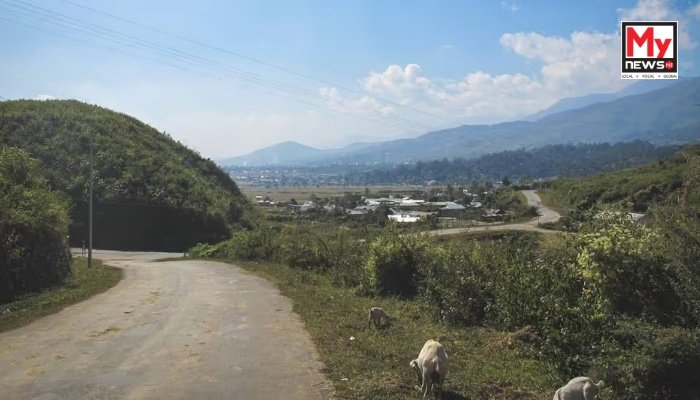
Biren Singh Alleges Manipulation in Manipur Legislative Order, Warns of Grave Implications for Hill Governance
Imphal: Former Manipur Chief Minister N Biren Singh has flagged what he calls a serious and potentially deliberate alteration in a foundational legislative document governing hill areas of the state, warning that the change could have far-reaching consequences on governance, land rights, and ethnic stability.
In a formal letter addressed to Governor Ajay Kumar Bhalla on June 25, Singh alleged a critical discrepancy between the Gazette of India-published version of the Manipur Legislative Assembly (Hill Areas Committee) Order, 1972 and the version being followed in the Manipur Assembly’s Rules of Procedure. The original Gazette version, Singh pointed out, refers to “the appointment of succession of Chiefs or Headman,” while the Assembly’s version has altered it to “the appointment or succession of Chief or Headman.”
Singh argued that while the change in wording may appear subtle, it has major administrative implications. The phrase “appointment of succession” suggests a regulatory framework for traditional hereditary succession, whereas “appointment or succession” opens the door to entirely new appointments—thereby allegedly enabling the uncontrolled proliferation of new village chiefs and settlements without traditional legitimacy.
Calling it a “serious and potentially deliberate” manipulation, Singh said the altered provision has led to ambiguity in land ownership, village recognition, and ethnic settlement dynamics. This has, according to him, aggravated tensions in the hill regions, especially amid the ongoing conflict between the Meitei and Kuki communities.
Singh requested the Governor to order an independent probe to determine who authorized the change in wording and when it was introduced. He also demanded a comprehensive audit to ascertain how many villages and new chieftain appointments have occurred under this modified framework.
The controversy ties into a larger, longstanding legislative void—the non-implementation of the Manipur Hill Areas (Acquisition of Chiefs’ Rights) Act, 1967. Although passed by the state and assented to by the President, the Act has never been enforced. Its core intent was to abolish the hereditary chieftainship system in hill regions, thereby bringing traditional village administration under democratic and statutory governance.
In the absence of its implementation, tribal chiefs—especially from the Kuki community—continue to enjoy unchecked authority over their villages, including the power to establish new ones. Singh warned that this outdated and unregulated system is being misused under the cloak of a distorted legislative clause.
His concerns echo those of other political leaders. BJP MLA Rajkumar Imo Singh has repeatedly pushed for the enforcement of the 1967 Act, pointing out that Mizoram successfully abolished hereditary chieftainship as early as 1954. “Manipur is the only state in the northeast where this Act isn’t implemented,” he said earlier this year, calling for urgent action.
With Manipur already reeling under ethnic conflict that has claimed over 260 lives and displaced nearly 50,000 people, the revelations risk further deepening communal mistrust and complicating legal governance in the fragile hill-valley dynamic. Singh’s letter, while raising alarms, underscores the growing demand for legal clarity, administrative audit, and the political will to enforce long-delayed reforms.
